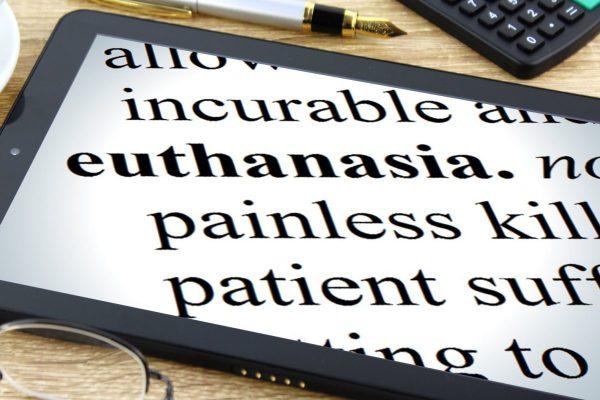When one stops to consider the particular circumstances of a 104-year-old's recent decision to end his life, it's difficult for many who sympathize with his plight not to see the judgment as anything but reasonable.
However, that's just one view.
Of course, there are many sides to the voluntary euthanasia (assisted suicide) debate, based on legal, philosophical and religious grounds, just to name a few. But the factors contributing to this instance, which prompted the Australian scientist to fly to Switzerland to do on Thursday what he strongly felt was right and proper, appears, at least from this standpoint, to be compelling and rational.
And most of all, it was an act that he felt would spare him considerable pain, suffering and misery that inevitably would come his way until the arrival of the final day of his natural life.
In his closing years, David Goodall, an academic and respected ecologist who had earned three doctorates, was watching his life deteriorate with ever greater frequency. Still able to think and communicate clearly, until two years ago Goodall worked in Perth, at the Center for Ecosystem Management at Edith Cowan University. But when he was asked to leave the institution, and he stopped working and then was forced to stop driving, his world closed in on him.
Goodall lived alone. Most of his friends had died. He didn't get much enjoyment from eating any longer. His hearing was going.
His physical limitations prevented him from doing the things he loved, among them traveling the countryside and performing in theater. And then last month, Goodall suffered a fall, worsening his physical condition and limiting whatever little ability he did have to move, even more.
Goodall decided – saying he felt clear-minded and thoughtful – that his quality of life had eroded so badly that his incentive to live had disappeared. And with the prospect of a slow and painful demise awaiting him, Goodall, recognizing the gratifying and fruitful life he had led, determined that it was his time to go.
“I’ve had a good life,” Goodall said during a press gathering in Basel, the day before he intravenously self-administered barbiturates. “One wants to be free to choose his death when death is at the appropriate time." In accordance with Swiss law, Goodall could receive assistance in preparation to receive a fatal overdose, but he had to open the IV valve himself.
The elderly, British-born scholar admitted that he had tried to commit suicide in Australia, where euthanasia and assisted dying are banned. And while a number of countries – Canada, Luxembourg, Belgium, the Netherlands and Colombia – permit both acts for citizens, Switzerland is the only country that provides assisted-dying services to foreigners, with one important provision: the person helping perform the life-ending procedure doesn't benefit from the death.
Goodall explained his thinking with his children and grandchildren and received their blessings.
“He has no control over his life, over his body, over his eyesight," said daughter Karen Goodall-Smith, speaking to Australian broadcaster ABC. "He has lived a really good 104 years. Whatever happens, whatever choices are made, they’re up to him.”
Goodall also made it clear, on his final day on Earth, that he hoped his public effort to end his life on his terms would help pressure the Australian government to enact sensible laws with safeguards, permitting its citizens to do as he did.
What do you think about this case? And about the topic of (voluntary) euthanasia or assisted suicide in general? Please post your comments below. We'd like to hear from you.




